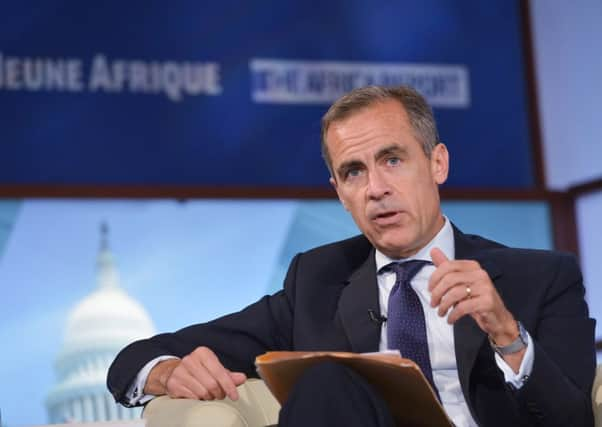Householder relief as interest rate rise recedes


Mortgage payments were expected to rise at the beginning of next year when the Bank had signalled it planned to raise interest rates for the first time in over six years. However, the predicted rise has now receded, with some experts predicting it may not occur until November or December 2015.
The Bank had been expected to raise interest rates in order to dampen down inflation, but inflation was shown to have fallen to 1.2 per cent yesterday, triggered by factors such as supermarkets competing by lowering prices and lower petrol prices.
Advertisement
Hide AdAdvertisement
Hide AdThe Consumer Price Index (CPI) measure of inflation dropped more sharply than expected from 1.5 per cent the month before, according to the Office for National Statistics (ONS).
Food and non-alcoholic beverages fell by 1.4 per cent – the steepest drop since June 2002 and the fifth month in a row they have not risen on an annual basis. It is the longest sustained period of flat or falling food prices since the end of 2004.
The pound fell sharply against both the dollar and the euro, making holidays more expensive as the sharper-than-expected inflation drop meant it was less likely that the Bank will need to take action soon to raise interest rates from their five-year low of 0.5 per cent.
Yesterday, Scott Corfe, head of macroeconomics at the Centre of Economics and Business Research, said: “What looked like a February 2015 rate rise a few months back is increasingly looking like a November 2015 rate rise. The unusually uncertain economic environment at present means that a rate rise is likely to come later rather than sooner. Low inflation gives the Bank room for manoeuvre to postpone a rate rise until some of the global economic uncertainty dissipates.”
The CPI figure means that state pensions will rise by 2.5 per cent or £2.85 a week next spring because the government’s “triple lock” ensures an increase of whichever is the greater out of average earnings; September’s inflation rate or 2.5 per cent.
The Bank targets inflation at 2 per cent but it has now been below this level for nine months in a row. The removal of immediate pressure on the Bank to raise interest rates also eases potential strain on households.
However, real-terms pay is still falling, with figures due out tomorrow expected to show it remains below 1 per cent.
The ONS figures showed that petrol fell by 0.8p per litre in September, and diesel by 0.7p, amid tumbling oil prices.
Advertisement
Hide AdAdvertisement
Hide AdMeanwhile, sea and air fares fell more steeply than at the same time last year, while laptops, tablets, computer games and e-books also contributed to the inflation slowdown.
The ONS said that were it not for the impact of falling food and motor fuel prices, the rate of inflation would be around a third higher at 1.6 per cent.
The Retail Price Index, a separate measure which includes housing costs, fell from 2.4 per cent to 2.3 per cent, its lowest level since November 2009.
Yesterday Prime Minister David Cameron said: “It’s good news that inflation remains low. Our long-term economic plan is delivering more financial security and stability for families.
“Today’s inflation figures mean a big real-terms increase in the state pension next year.”